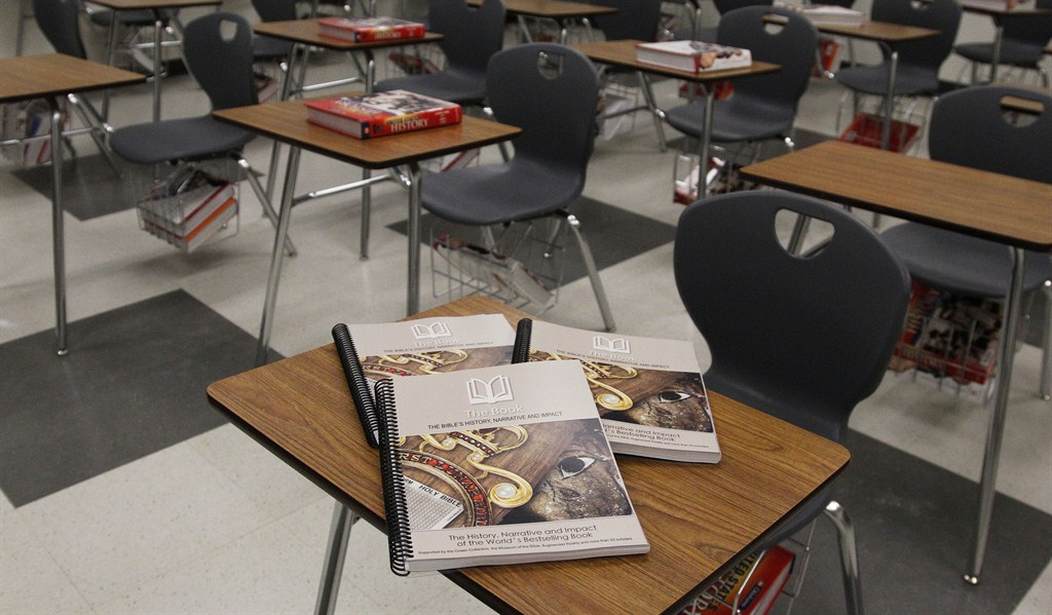Dunbar High School in Washington is becoming a controversial issue again -- and the controversy that is beginning to develop has implications for American education well beyond the District of Columbia.
There has not been much controversy about Dunbar High School for a long time. Since sometime in the late 1950s, it has been just one more ghetto school with an abysmal academic record -- and that has been too common to be controversial.
What is different about the history of Dunbar is that, from its founding in 1870 as the first public high school in the country for black students, until the mid 1950s, it was an outstanding academic success.
As far back as 1899, when tests were given in Washington's four academic high schools at that time, the black high school scored higher than two of the three white high schools. That was the M Street School that was renamed Dunbar High School in 1916.
Today, more than a hundred years later, it would be considered Utopian to even set such a goal, much less expect it to happen. In 1954, the Supreme Court declared that separate schools were inherently unequal, no doubt in ignorance of Dunbar, which was within walking distance of the site of that sweeping pronouncement.
The test results in 1899 were no isolated fluke. Over the next several decades, four-fifths of Dunbar graduates went on to college -- far more than for either black or white high school graduates in the country at large during that era.
Most went to inexpensive local colleges but, among those who went on to Ivy League and other elite colleges, a significant number graduated Phi Beta Kappa. At one time, Dunbar graduates could get into Dartmouth or Harvard without having to take an entrance exam.
Recommended
That was when Dunbar was controversial.
Some in the black community were proud and grateful that there was such a school where any black youngster in the city, no matter how poor, could go to get an education that would equip him or her to go on to college anywhere and compete with anybody.
But others decried Dunbar as an "elitist" school with academic standards that many black youngsters could not meet and a set of attitudes and behavior that some in today's world would call "acting white."
Nor was this accidental. A handbook issued to students entering Dunbar prescribed behavioral standards and values, not just for the school but for life outside as well. Without saying so, those standards and values were an implicit repudiation of the way many poorer and less educated blacks behaved.
It would be hard to exaggerate the hostility, and even bitterness, toward Dunbar by some of those who never went there -- and who saw, and resented, the differences in attitudes and behavior between Dunbar students and themselves.
The late William Raspberry once wrote in his Washington Post column that you could turn any social gathering of local blacks into warring camps just by saying the one word "Dunbar."
What destroyed more than 80 years of academic achievement at Dunbar High School, virtually overnight, was changing it from a selective school, to which black youngsters from anywhere in the city could apply, to a neighborhood school, located in a poor ghetto neighborhood.
Now there is a new controversy brewing as some have suggested that the new Dunbar High School building be made a city-wide selective high school, rather than remain a neighborhood school.
All the talk about elitism, and about abandoning neighborhood youngsters, in order to serve others, has been revived and another poisonous issue now added -- race.
Those black spokesmen who see all issues through a racial prism see the proposed change as a way to accommodate whites who want to send their children to a public school that keeps out many ghetto blacks. But the issue of selectivity was controversial even when Dunbar was an all-black school.
With or without racial issues, there is no way to provide a good education for youngsters who want to learn when there are less able and more disruptive kids in the same classes. Are those who came to learn going to be sacrificed until such indefinite time as it takes for us to "solve" the "problems" of those who don't?

























Join the conversation as a VIP Member